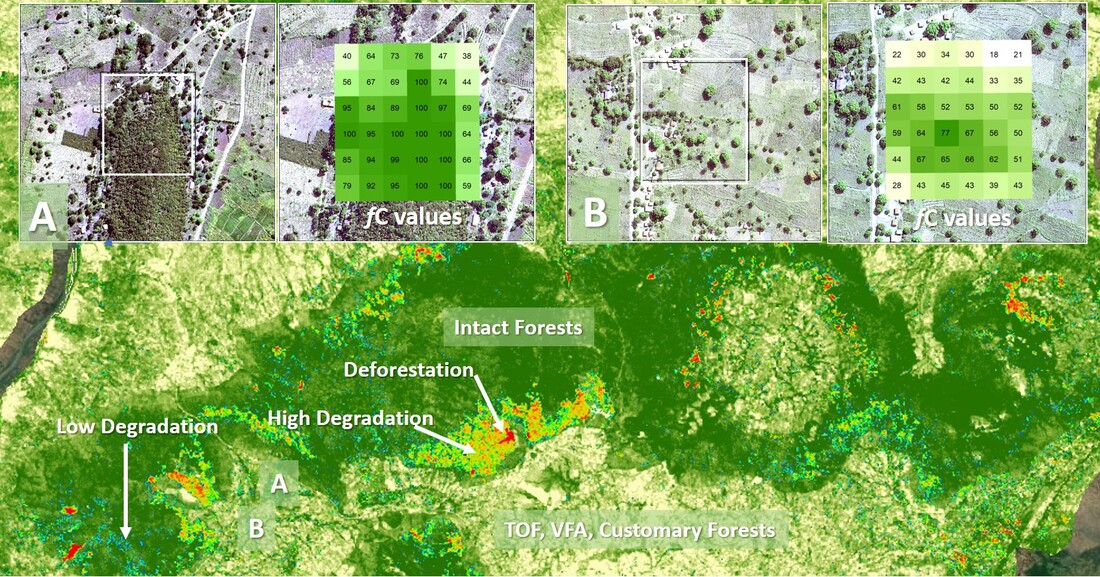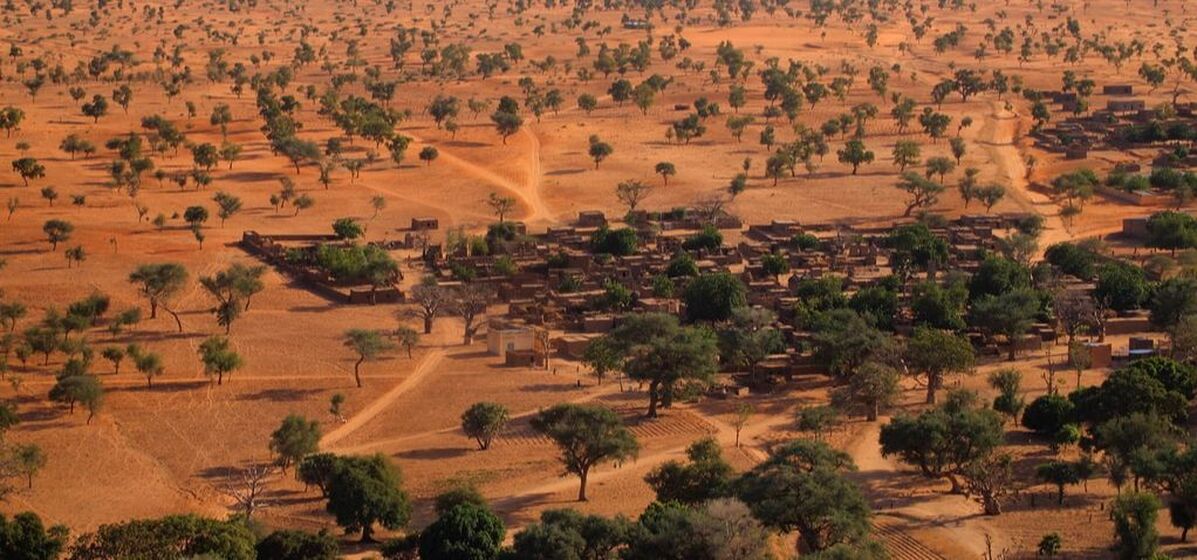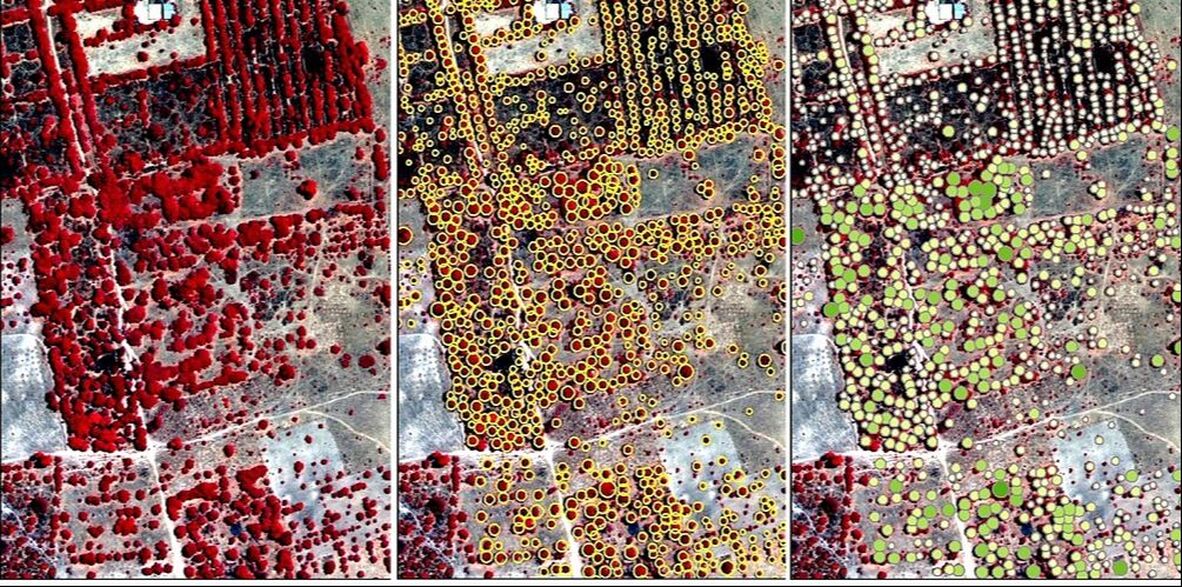NASA has funded an international team of US and African institutions to study a new land cover transition in systems of Trees Outside of Forests (TOF), that could have important implications for global climate change mitigation and adaptation. The project is mapping deforestation, forest degradation, in gazetted forests and in tree-based systems outside of forests, including customary forests (see our latest results from Malawi below). Most forests in the tropics are losing carbon and are a net source of emissions, but there is growing evidence that TOF landscapes around the world are increasing tree biomass and are important potential sinks for carbon. Africa is a particularly important region, as recent studies have identified the occurrence of farmer-mediated and farmer-promoted increases in biomass in savanna and woodland landscapes in rural areas.
The project will use earth observation satellite image data to map TOF landscapes in West and East/Southern Africa. The objective: estimate the area today, as well as examine its trend and future potential. The question is important because of the potential large area in African semi-arid lands that currently support TOF, which could be increased through policy and economic development interventions. Furthermore, TOF systems can have significant benefits to local communities through agroforestry and other tree-based production systems that bring higher economic returns to local livelihoods and enhanced environmental benefits for land rehabilitation.
The project will use earth observation satellite image data to map TOF landscapes in West and East/Southern Africa. The objective: estimate the area today, as well as examine its trend and future potential. The question is important because of the potential large area in African semi-arid lands that currently support TOF, which could be increased through policy and economic development interventions. Furthermore, TOF systems can have significant benefits to local communities through agroforestry and other tree-based production systems that bring higher economic returns to local livelihoods and enhanced environmental benefits for land rehabilitation.
See Results from Our Recent Analyses in Malawi and Sengal
Skole D.L., Samek J.H., Mbow C., Chirwa M., Ndalowa D., Tumeo T.I., Kachamba D., Kamoto J., Chioza A., Kamangadazi F. 2021. Direct Measurement of Forest Degradation Rates in Malawi: Toward a National Forest Monitoring System to Support REDD+, Forests 12(4):426. https://doi.org/10.3390/f12040426
Skole, D.L.; Samek, J.H.; Dieng, M.; Mbow, C. 2021. The Contribution of Trees Outside of Forests to Landscape Carbon and Climate Change Mitigation in West Africa. Forests 12(1652). https://doi.org/10.3390/f12121652
Click for reprints for Malawi and Senegal
Click video for field work method discussion
Why TOF?
| why_tof.pdf | |
| File Size: | 44 kb |
| File Type: | |
Making the Case for Research on TOF in Africa
| making_the_case.pdf | |
| File Size: | 736 kb |
| File Type: | |
Project Impact and Outcomes
| impacts_and_outcomes.pdf | |
| File Size: | 77 kb |
| File Type: | |
The International Team
| the_team.pdf | |
| File Size: | 72 kb |
| File Type: | |
View a Short Course on TOF, scroll down...
Part 2: Global Examples
Part 3: Examples continued
Part 4: Technical Aspects


